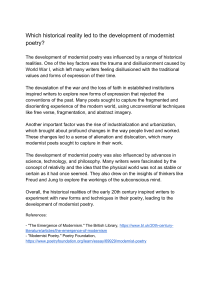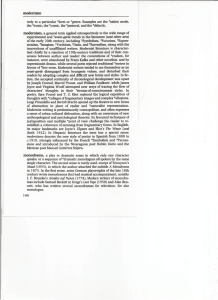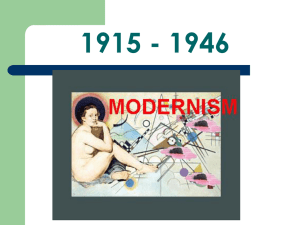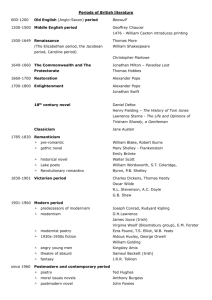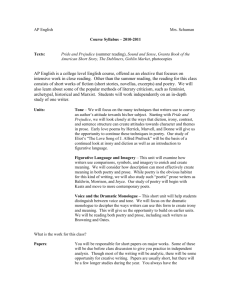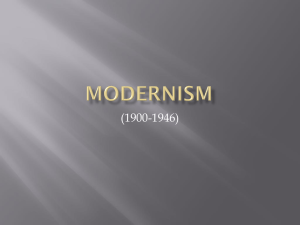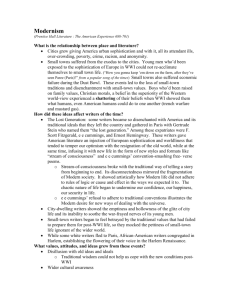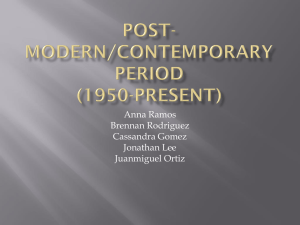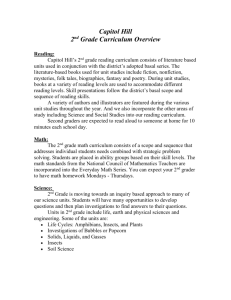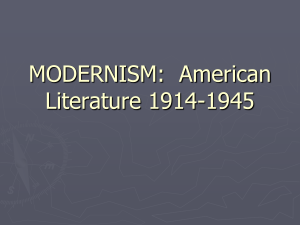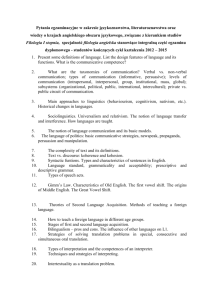American Literature 1910
advertisement
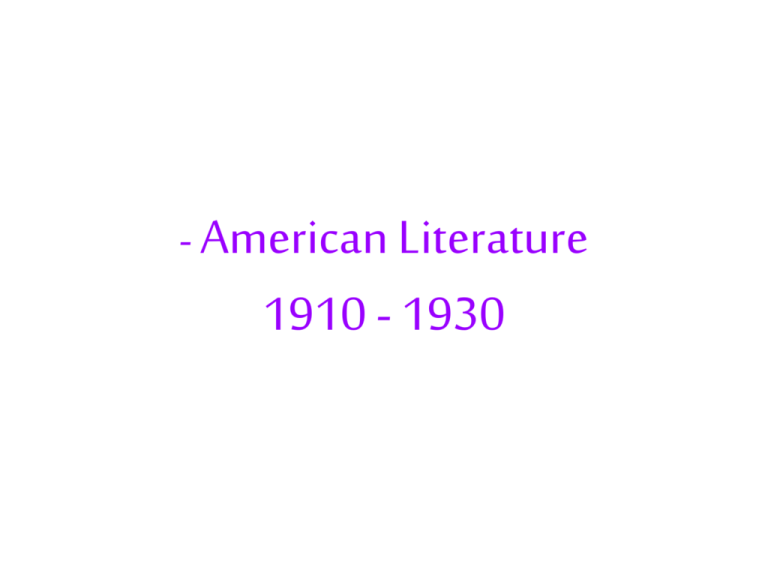
- American Literature 1910 - 1930 Era of Modernism • Desire to “break” with the past • Pivotal event of the era was WWI – before the war the attitude was one of optimism • Many writers lived in Europe during this time • Writers who did not go to Europe before the war visited during and after • WWI was a tragic failure of old values, old politics, and old ideas – essential to cast off ways of the past – filled with despair and confusion • Expatriates – disenchantment after the war led many writers to become expatriates or exiles – many settled in Paris where they were influenced by Gertrude Stein – she coined the phrase “the lost generation” to describe those disillusioned by the war • Modernist writers not only wanted to express the waste and futility, but they wanted to make some sense of the experience Modernist Literature • “Make it new” – cry of Ezra Pound • Modern psychology had great impact on literature – writers showed how we often think by leaping from association to association in what William James called “stream of consciousness” • Imagism – poetic movement that ushered in the era- the imagists rebelled against the sentimentality of the 19th century- they demanded hard, clear expression, concrete images, and the language of every day speech – their models came from the Greek and Roman classics, the Chinese and Japanese, and free verse of French poets of their day • • Poetry discards meter and rhyme – free verse is the tool of most • Visual appearance of poetry is important • Use of everyday subjects that would be unusual in 19th • Often fragmentary reflecting not only the “stream of consciousness” but the Modernist perception of 20th century as a jumble of conflicting ideas • Modernists often insist that readers participate and draw own conclusions – the modernist shows rather than tells • Imagist poetry uses an image to capture an emotion River Merchant’s Wife • Ezra Pound adapts the poem from the Chinese • In her letter the young wife reviews their life together - bashfulness at 14, growing love at 15 and a deep love and longing at 16 • Worried about the dangers he faces • Willingness to go meet him Janet Waking • John Crowe Ransom takes a sentimental topic and treats it in an unsentimental way • Uses irony & pathos • Janet discovers her Chucky has died = killed by a bee sting • First experience with death • Pleads with her parents to waken Chucky • Waking from innocence • The detached tone allows the events to speak for themselves old age sticks • e.e. cummings –uses experimentation to present traditional themes • Capitalization and word placement are important also irony • Warnings of the elderly about the dangers of age go unheeded by the carefree young. • The young tear down the signs, but one day they will be posting the signs themselves • Elderly recognized with capital letters and parentheses • Use of irony in last stanza Mending Wall • Robert Frost writes much about nature in New England • Sees a relationship with humanity and nature • Frost describes the upkeep of stone walls that separate neighbors both literally and figuratively – • as the speaker he feels that “something there is that doesn’t love a wall” but his neighbor fiercely true to his father’s traditions counters that “good fences make good neighbors.” • What is the reason for the wall • When do they rebuild Stopping by the Woods • • • • Stops to watch the snow Horse impatient to move on Mile to go before he sleeps Actions show he has a sense of appreciation of nature and responsibility • Internal conflict –torn between the desire to stay and appreciate nature and an awareness that he has commitments to fulfill The Road Not Taken • • • • Written about his friend Edward Thomas Both roads equally appealing Would like to try both Chooses path less traveled – independent spirit – doesn’t follow the crowd • He is committed to take the road • Says he will come back but knows in life one thing leads to another • Relief or happiness – sorrow or regret • (interpretation up to the reader) • The road he chose has made all the difference • Knows what his life is like from the road he has chosen but does not know what it would have been like if he had taken the other road
